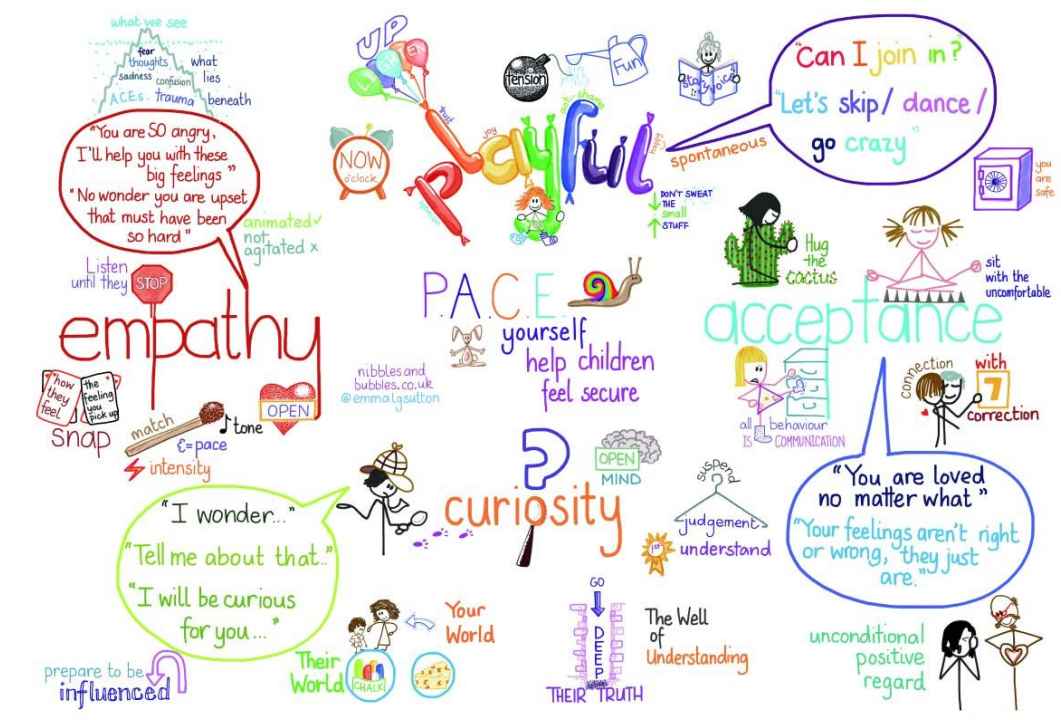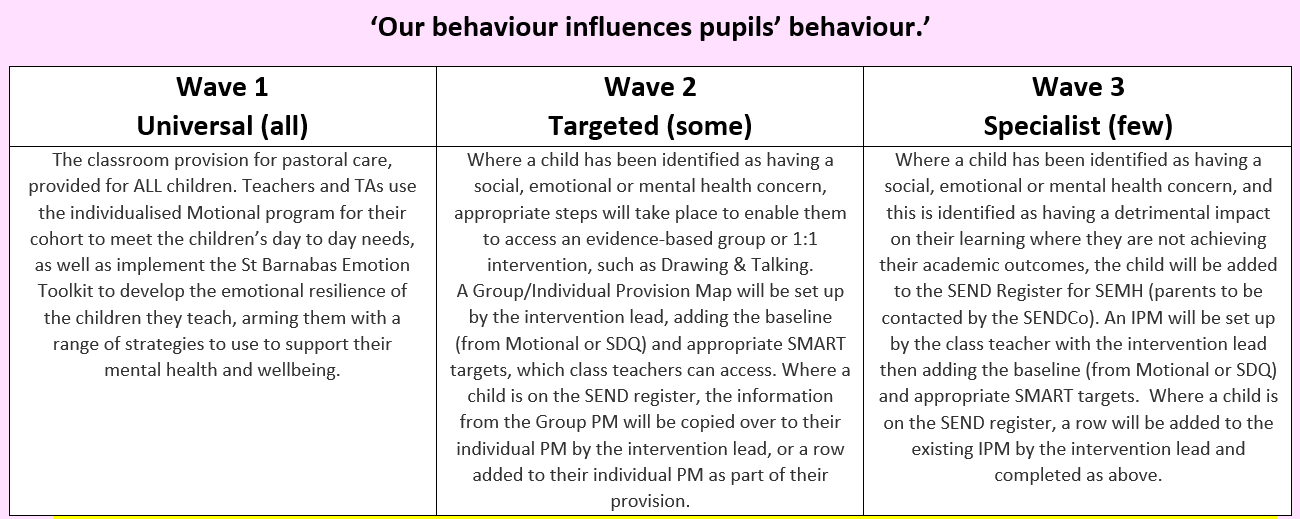Mental Health and Wellbeing
We all have mental health. Your mental health affects how you feel, think and act. It refers to your emotional, psychological and social wellbeing. Your mental health can change on a daily basis and over time, and can be affected by a range of factors. (Mentally Healthy Schools)
At St Barnabas, all adults work hard to ensure all our children feel safe, happy, involved in the school community and able to perform to their full potential. Our commitment to pastoral care feeds into everything we as a school do, to ensure our children have the best chance at success and the support to flourish.
At our school, we promote a mentally healthy environment through:
- Promoting our school values and encouraging a sense of belonging
- Promoting pupil voice and opportunities to participate in decision-making
- Celebrating academic and non-academic achievements in order to promote self-esteem
- Providing opportunities to develop a sense of worth through taking responsibility for themselves and others
- Providing opportunities to reflect
- Access to appropriate support that meets their needs
- Helping children to understand their emotions and feelings better and to feel comfortable sharing any concerns or worries
- Helping children to develop emotional resilience and to manage setbacks
PACE
All of the adults at St Barnabas are trained in PACE.
PACE was developed by Dr Dan Hughes (a clinical psychologist specialising in childhood trauma) more than 20 years ago as a central part of attachment-focused family therapy. It was created with the aim of supporting adults to build safe, trusting and meaningful relationships with children and young people who have experienced trauma. The approach focuses on building trusting relationships, emotional connections, containment of emotions and a sense of security.
PACE is a way of thinking, feeling, communicating and behaving that aims to make the child feel safe. It is done by communicating the four elements of PACE together flexibly, not as a step by step process. Using PACE helps adults to slow down their reactions, stay calm and tune into what the child is experiencing in the moment. It supports us to gain a better understanding of what the child is feeling.
In tricky moments it allows us to stay emotionally regulated and guide the child through their heightened emotions, thoughts and behaviours. In turn, PACE helps children and young people to feel more connected to and understood by important adults in their life and ultimately, to slow down their own responses.
For more information about PACE, please see the information below.

We offer different levels of support:
More information about our Emotion Toolkit can be found on our website.
| Examples of group and 1:1 interventions/provision |
Daily check-ins Feelings Cup Sensory Circuits Feelings First: Starving The Anxiety Gremlin; Starving The Anger Gremlin; Ruby & The Rubbish Bin - building self-esteem; My Hidden Chimp - managing emotions and behaviour Once upon a feeling... Bravewood Bloom & Belong Teamwork Tribe Path Finders |
| Specialist Interventions |
Drawing and Talking (1:1) Lego Therapy (small group) WAM - Worcestershire Autism Mentor Programme (1:1) |
For some children, seeking external support for emotional wellbeing is appropriate. We use a number of external providers who provide support to children, from Helping Hands (for children who have experienced Domestic Abuse) to St Richards Hospice bereavement services.
If a chid could benefit from some emotional support, we may suggest completing a MELO referral. This requires parental permission.
Melo is available to all Children & Young People aged 0-25 and their families who need support to:
- Address early mental health issues
- Promote wellbeing
- Build emotional resilience
You can find out more about MELO here: Melo :: Onside, Worcestershire & Herefordshire
If you would like more information about emotional wellbeing support for your child, please contact Louise Reeder via the School Office.

